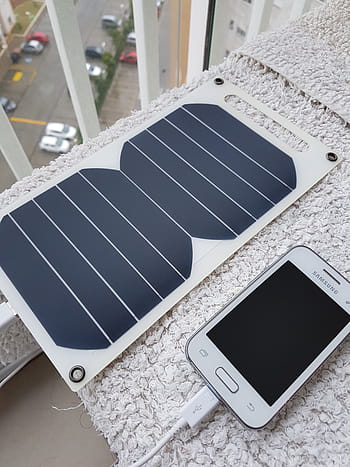Introduction
In a world where political stability can sometimes be uncertain, it is important to consider alternative approaches to living that can ensure our safety, security, and well-being. Off-grid living, often associated with sustainability and self-sufficiency, can also be a viable option during periods of civil unrest or civil war. By disconnecting from traditional infrastructure and relying on renewable resources, individuals or communities can maintain their independence and reduce their vulnerability in times of crisis. In this article, we will explore the benefits, challenges, and strategies for off-grid living in the event of civil unrest or civil war.

I. Understanding Civil Unrest and Civil War
To comprehend the context of off-grid living during civil unrest or civil war, it is crucial to define these terms. Civil unrest refers to a state of public disorder, usually characterized by protests, demonstrations, or riots caused by various social or political issues. On the other hand, civil war is an armed conflict between factions within the same country (think of some of the political posturing by ANC and EFF), often leading to significant destruction, displacement, and humanitarian crises. By being aware of the potential for such scenarios, individuals can better prepare for them and make informed decisions regarding their living arrangements.
II. Benefits of Off-Grid Living in Times of Civil Unrest
Independence and Self-Sufficiency
Off-grid living empowers individuals or communities to become self-reliant by generating their own power, growing their own food, and sourcing their water sustainably. This independence reduces dependence on fragile infrastructures and external resources that might be compromised during civil unrest or civil war.
Enhanced Security During Civil Unrest
Living off-grid can provide a certain level of seclusion, making it less likely to become a target during times of civil unrest. Remote locations and sustainable practices can deter potential threats and increase overall security for individuals and communities.

Reduced Reliance on Centralized Systems
During periods of civil unrest, utilities such as electricity, water, and communication networks may experience disruptions. Off-grid living eliminates or minimizes dependence on these centralized systems, enabling individuals to adapt and continue their daily lives with minimal disruption.
Environmental Sustainability
Off-grid living often involves renewable energy sources, organic farming, and sustainable practices. By adopting such approaches, individuals not only reduce their impact on the environment but also promote resilience and self-sufficiency in the face of civil unrest or civil war.
III. Challenges and Considerations
Initial Investment
Transitioning to an off-grid lifestyle can require significant upfront investment in renewable energy systems, water collection, and other infrastructure. Planning and budgeting are crucial to ensure a smooth and successful transition.

Skill Acquisition
Off-grid living often demands a diverse set of skills, including renewable energy management, sustainable agriculture, and basic repair and maintenance. Acquiring these skills beforehand or forming a community with complementary skill sets can help overcome these challenges.
Social Isolation During Civil Unrest
Living off-grid, especially in remote locations, can result in social isolation. Building strong relationships within an off-grid community and maintaining communication with the outside world are essential for mental well-being and access to vital information.
Security Concerns
While off-grid living can offer enhanced security, it is important to remain vigilant and develop security measures tailored to the specific context. Establishing community-based security systems and maintaining good relationships with neighboring communities can contribute to a safer environment.
IV. Strategies for Successful Off-Grid Living
Energy Independence

Investing in renewable energy sources such as solar panels, wind turbines, or hydroelectric systems can provide a reliable and sustainable source of energy.
Battery storage systems
Battery storage systems and backup generators can ensure uninterrupted power supply during times of limited sunlight or wind.
Water Sustainability
Implementing rainwater harvesting systems, well drilling, or water filtration methods can help ensure a steady supply of clean water. Conservation practices like water-efficient appliances, greywater recycling, and permaculture techniques can further optimize water usage.
Food Production
Growing your own food through gardening, permaculture, or aquaponics systems can provide a continuous food supply. Storing non-perishable food items and learning food preservation techniques like canning, drying, and fermenting can also be valuable during times of limited access to groceries.
Communication and Information
Establishing alternative communication channels is crucial during civil unrest or civil war. Investing in two-way radios, satellite phones, or building local mesh networks can enable communication within the off-grid community and maintain contact with the outside world.
Community Building
Forming or joining an off-grid community can enhance security, resource sharing, and mutual support. Collaborating on essential tasks, organizing security measures, and establishing democratic decision-making processes can foster a strong and resilient community.

Preparedness and Adaptability
Developing emergency response plans, stockpiling essential supplies, and practicing situational awareness are essential for off-grid living during times of crisis. Regular drills and training sessions can help community members effectively respond to emergencies.
Education and Skill Sharing
Promoting education and skill-sharing within the off-grid community can enhance self-sufficiency and resilience. Workshops, training sessions, and sharing resources on topics such as renewable energy, sustainable agriculture, and self-defence can empower individuals to navigate challenging circumstances.
Conclusion
Off-grid living offers a resilient approach to navigating the uncertainties associated with civil unrest or civil war. By embracing independence, self-sufficiency, and sustainable practices, individuals and communities can reduce their vulnerabilities and adapt to changing circumstances. However, off-grid living also poses challenges that require careful consideration and planning. It is essential to invest in the necessary infrastructure, acquire relevant skills, build strong communities, and prioritize security measures. By adopting these strategies and fostering a spirit of preparedness, individuals can establish a resilient lifestyle that ensures their well-being and survival even in the midst of civil unrest or civil war.

“It is better to have prepared and never to need it than to be unprepared and be in desperate need of it”.
Be Aware. Be Safe. Be Prepared!
